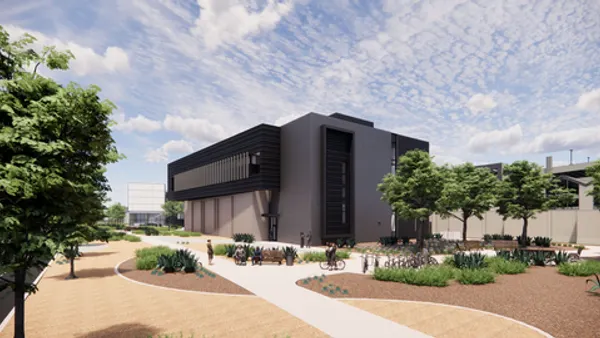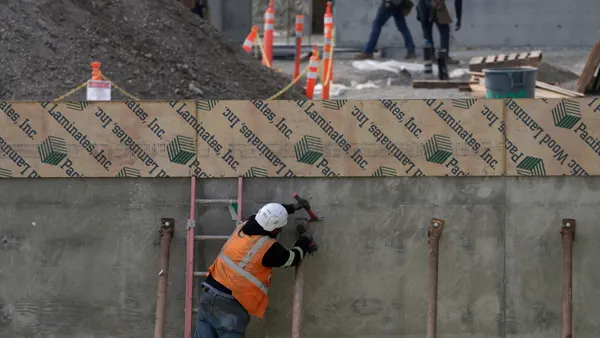Dive Brief:
- The president of the Massachusetts Building Trades Council (MBTC), Francis X. Callahan Jr., has asked Massachusetts Gov. Charles Baker to take another look at the state's COVID-19 reopening plan and provide more worker protections. In his open letter to Baker, Callahan responded to the contents of the state Reopening Advisory Board's report and to Baker's COVID-19 Order No. 33 "Order Implementing a Phased Reopening of Workplaces And Imposing Workplace Safety Measures to Address COVID-19" issued on May 18.
- Callahan's letter refers to the "zero tolerance" language used in the board's report, which mandates workers take the proper safety precautions when on the jobsite and stay home when sick, but neglects to impose the same standard on employers as to their own safety responsibilities.
- "While we share the opinion that sick workers should not report to work the report needs to include similarly forceful language and emphasis when discussing the failure of employers to comply with the recommendations and standards spelled out in the report," he wrote. "If we are truly all in this together, then the standards need to be the same for everyone. Zero tolerance must apply across the board."
Dive Insight:
The state, wrote Callahan, also fails to provide sufficient protection for those workers who choose not to work if they're given inadequate personal protective equipment (PPE) or there are unsafe conditions; fails to mandate face masks at all times on construction sites; and is not clear regarding COVID-19 reporting and tracking requirements. MBTC wants the board's report amended in the following ways:
- To require the same strong "zero tolerance" tenets of the report for employers, not just workers.
- To clarify the report and Baker's order to require face coverings while on the job.
- To "fill in the gaps" of the state's reporting and tracking policy.
- To allow workers to refuse unsafe work conditions without losing pay.
- To provide stronger whistleblower protections.
Massachusetts was one of the first states to shut down construction because of the novel coronavirus and is now among those trying to restart the industry in the safest way possible. The process includes laying down social distancing and other rules for contractors to follow. Trade unions in the state have taken the lead in helping to shape these new safety protocols.
In April, an estimated 17,000 construction workers walked off jobs in Massachusetts. The North Atlantic States Regional Council of Carpenters and the International Union of Painters and Allied Trades (IUPAT) District Council 35 said they would not provide labor on several projects throughout the state because of safety concerns and allegations that owners and general contractors were not enforcing social distancing, not providing necessary personal protective equipment and not following other COVID-19-related protocols.
About a week later, the work stoppage ended and workers were told to return to their jobs as long as effective safety practices were in place.
Since the pandemic began, trade unions in Massachusetts and elsewhere across the country have taken on renewed influence by advocating for members’ best interests in keeping sites operational and safe. To get ready for this trend, general contractors should be prepared to collaborate with unions and ensure they create work environments that meet their standards for jobsite health, even if they operate in traditionally open shop states, Joe Natarelli, leader of Marcum LLP's national Construction Industry Group, told Construction Dive.
“It’s going to cost more money and not going to be as efficient as in the past, but the market is going to force those types of changes,” Natarelli said.










